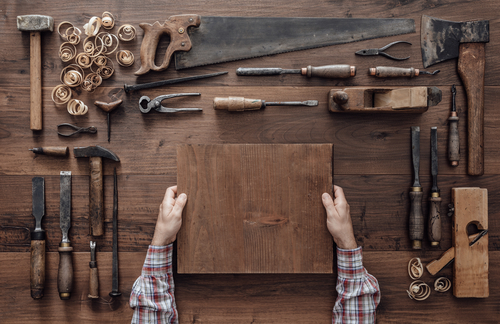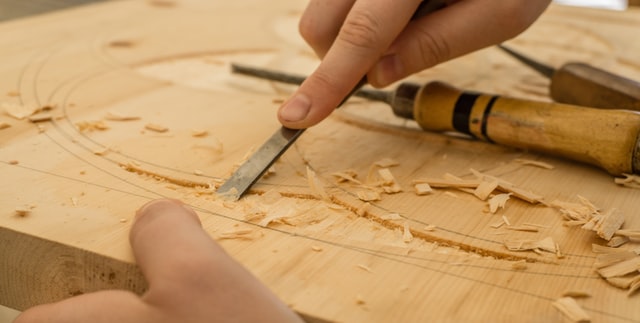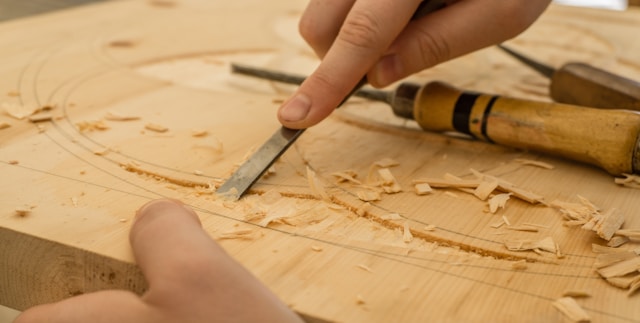Carpenters work on many types of construction, as well as other kinds of projects. They frame houses, build decks, sheds, barns and furniture. They set concrete formwork and do repairs like installing doors and windows.

In order to be able to do his job successfully, a carpenter must know how to interpret technical drawings, how to cut wood, assemble the elements, prepare the wood for the sculpture etc. Objects handcrafted by carpenters have an important decorative characteristic resulting from talent, professionalism and the application of traditional ornamentation techniques.
Skills of a professional carpenter include:
– Mechanical processing of solid wood parts
– Knowing different types of wood
– Knowing the tools used in the production process
– Knowing how to sand wood
– Working with various types of varnishes and paints used in the wood industry
– Repairing and reconditioning furniture
The disadvantages of being a carpenter are:
– Having to budget carefully to prepare for lay-offs or periods of no freelance work (especially in poor economic times)
– Standing, stooping and lifting
– The possibility of injury at work
– Having to work sometimes in hot, cold, dusty or noisy environments
Some carpenters find they get more clients because they can relate well to people and have empathy. Matthew Nicholas is a professional carpenter in America who has those qualities. He says, “It’s been my experience that the clients who hire me want an intimate level of service and communication, and require confidence in me that everything will be taken care of to a level of quality and diligence that they don’t often receive.
“I’m a listener, a confidant, and occasionally, a therapeutic witness to some sort of life-event, because I am there and I am available to be supportive or simply a sounding board. You might say I’m like the archetype of the corner bartender who listens to his customers’ complaints, only in someone’s living room and without the boozy elixir.”
However, Matthew says many people choose carpenters who offer a lower fee but do a poor job. The requirements for becoming a carpenter are low. He wishes there was a trade standard for carpenters so that both clients and carpenters could know what the capability of the tradesman should be before they are hired.
Many people who do DIY work don’t understand the skill and ability good carpenters have developed over many years.
This is partly due to unrealistic images of carpenters the adverts paint in the media. Matthew says, “[The media] shows a handsome young wannabe-actor swing a sledge-hammer in minute seven, then shows a beautiful (as far as the camera sees) finished project at minute twenty-nine as the credits roll. [So the viewer thinks] that any semi-handy fella or lady can do the things that we pros have made a career of.” Matthew wishes that the media would show more realistic and positive portrayals of working professional carpenters.
A good carpenter should be paid for what they CAN do in an hour — any hour, anywhere, on any job. Their skills and abilities should come at certain cost. You may feel you are paying more for the carpenter’s work than you may have to pay another carpenter. But the extra cost buys you a conscientious, articulate, sane, sober, and trustworthy professional within your home and at your command throughout the contract.

